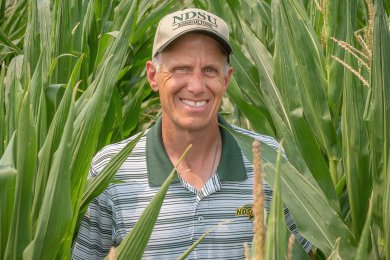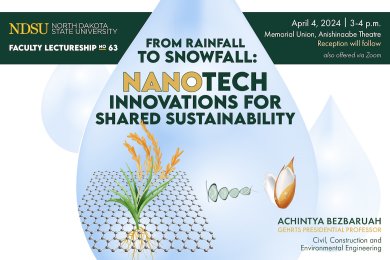Abbey Wick, Extension soil health specialist in the NDSU Department of Soil Science, has been named chair of Division 3 - Soil Use and Management of the International Union of Soil Scientists. It is one of four major divisions for the worldwide society, which has more than 60,000 members in 57 countries.
“I am really excited. Being on both the National Academy of Science U.S. National Committee for Soil Science for the past year and now the IUSS as a division chair for the next four years has opened a lot of doors for me,” Wick said, noting that she starts in the position in early August. “I now have more connections with other soil scientists nationally and will further develop those connections internationally. Soils are dynamic and complex, so connecting with other scientists and learning from them about various systems and intricacies of soils is improving my ability to bring a new perspective to the programs I develop in Extension and the individuals I work with in North Dakota. It is such an honor to be part of both organizations.”
The soil use and management division is comprised of six commissions:
• Soil evaluation and land use planning
• Soil and water conservation
• Soil fertility and plant nutrition
• Soil engineering and technology
• Soil degradation control, remediation and reclamation
• Salt-affected soils
“Soils are a tremendous environmental and economic resource and there is an urgent need to advance the scientific understanding of soil systems, given their critical role in food production,” said Colleen Fitzgerald, NDSU vice president for research and creative activity. “The recognition of Dr. Wick's extensive expertise on a national and international stage is another demonstration of the stature of our NDSU researchers in areas vital to North Dakota's future.”
Wick’s research and Extension work address the theory behind ecosystem processes and management practices to repair ecosystems following disturbance. She considers climate, landscape position, hydrology, geology, vegetation communities/crop systems and fundamental soil processes during the selection of an appropriate management practice as she works with landowners, industry and government agencies.
Wick earned her bachelor’s degree and master’s degree in geography from the University of Denver and her doctorate in soils science at the University of Wyoming.
As a student-focused, land-grant, research university, we serve our citizens.

